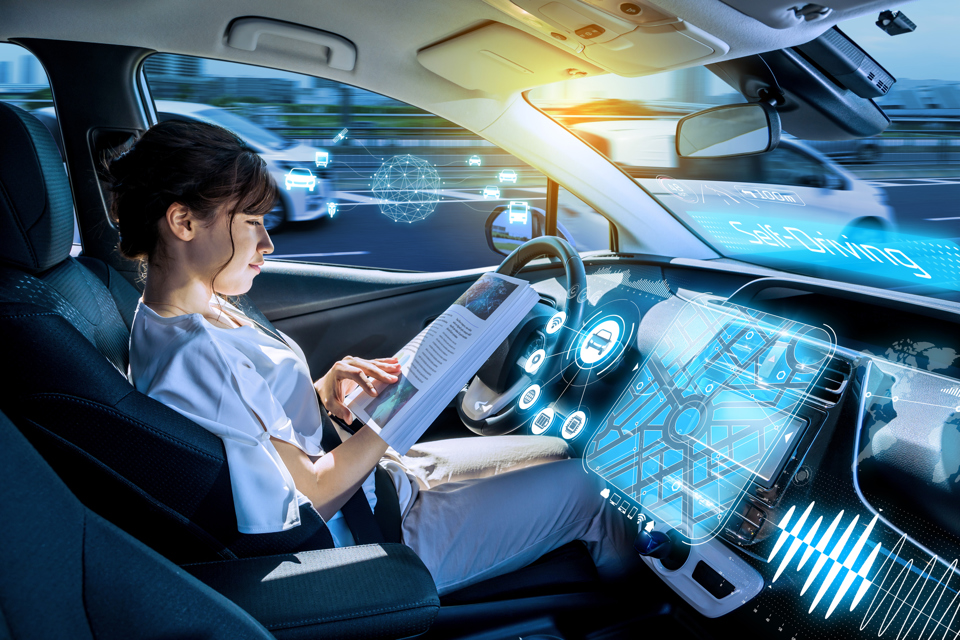Parliament is being urged to back the Automated Vehicles (AV) Bill to ensure its swift passage into law so self-driving technology can be deployed sooner rather than later.
Even if the current timetable is met, following the Bill’s second reading in the House of Commons in early March, the UK is unlikely to see self-driving vehicles on British roads until at least 2026.
However, should the legislation be delayed until after the general election, that date is likely to be nearer to 2030, putting the UK at a significant disadvantage, says the Society of Motor Manufacturers and Traders (SMMT).
Rival markets in the EU and US already have regulatory frameworks in place.
The SMMT says that the UK can unlock the massive safety and economic benefits of self-driving passenger cars and public transport services.
The tech, which reduces the risk of human error, could save an additional 3,200 lives and prevent 53,000 serious accidents from now until 2040, with a £38 billion economic boost, according to the SMMT.
Speaking today at SMMT Connected 2024, a major automotive event exploring the future of personal mobility and mass transport, Mike Hawes, SMMT chief executive, said: “Backing the AV Bill now is fundamental if Britain is to not only develop but deploy self-driving passenger cars and services.
“We have the foundations, but other major markets are stealing a march, with regulation already in place allowing them to benefit from UK-developed self-driving tech that cannot be rolled out here.
“Any further delay risks leaving Britain in the slow lane, jeopardising our competitiveness and holding back the significant safety and economic rewards self-driving technology can deliver.”
YouGov research commissioned by the SMMT found that nearly a third of adults (29%) would use an automated bus, shuttle or taxi service if available today, with one in four (26%) likely to try self-driving features in a personal car – even though they have yet to experience the technology.
The poll also found that young people are even keener, with Generation Z (18-27-year-olds) almost twice (34%) as likely to try a personal car with self-driving features than baby boomers (18%) (60-78-year-olds).
Reduced stress of driving, safer journeys and potentially lower insurance costs were listed as the top three benefits of a self-driving car.
For self-driving passenger services such as a bus, shuttle or taxi, consumers were most motivated by the prospect of lower fares, better availability in rural areas and safer journeys.
Existing technologies such as Adaptive Cruise Control and Park Assist, the most popular Advanced Driver Assistance Systems (ADAS) among survey respondents, are already making our roads safer.
Advanced Emergency Braking (AEB) technology, for example, is now available on eight-in-10 new cars and has led to a 38% reduction in real world rear-end crashes.
With some nine-in-10 road collisions caused by driver error, the potential of new fully automated features to reduce the risk of accidents and casualties on Britain’s roads is self-evident.





















Login to comment
Comments
No comments have been made yet.